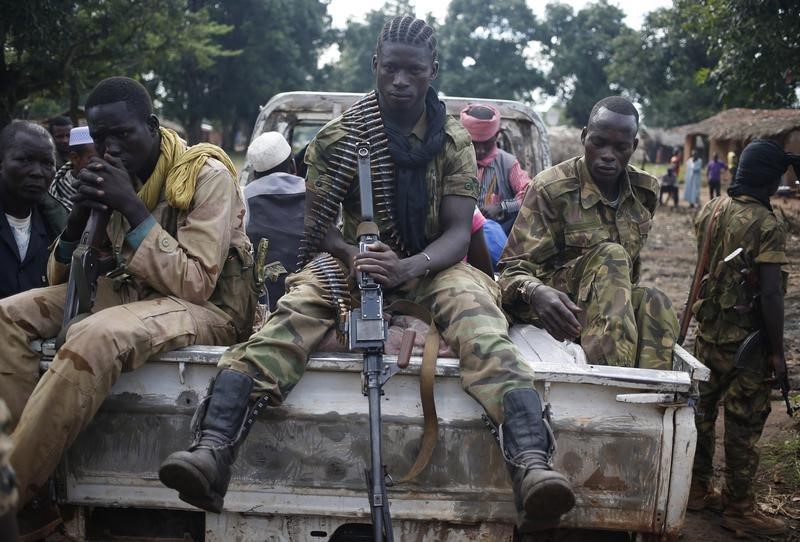Central African Republic
Refugees displaced by violence living in a camp in M’Poko International Airport, Bangui. [Time]
In 2003, a coup led by General François Bozizé, overthrew Ange-Félix Patassé, the leader of the Central African Republic (CAR). Immediately after assuming power, Bozizé faced a coalition of rebels, the Union of Democratic Forces for Unity, in the Central African Bush War. The Bush War ended in 2009 with Bozizé remaining in power, however, a stronger threat emerged from the north in December 2012, Seleka. Seleka was a coalition of primarily Muslim rebel militant groups known for its brutality. By January 2013, Seleka had advanced to Bangui, the capitol of the CAR, but stopped the advance after reaching an agreement with Bozizé. In March, however, Seleka determined that the government was not upholding its part of the deal, and stormed into Bangui, sending Bozizé fleeing the country. Rebel leader Michel Djotodia assumed control of the CAR and officially disbanded Seleka. Unfortunately, however, the ex-Seleka rebels were unable to be contained, and rampaged through the CAR, pillaging, raping, kidnapping, and murdering. In response to this violence, Christian fighters formed coalition forces known as the anti-balaka to protect themselves from the rebels. Despite forming out of a need for self-defense, Anti-balaka forces began targeting Muslim communities, displacing thousands of civilians. Retaliatory attacks from the ex-Seleka soon followed, and the country plunged into a sectarian war between countless religious factions and militant groups. International actors attempted to intervene, however, the brutal fighting continued throughout the 2010s.

Seleka fighters sit on the back of a truck in the town of Goya, 2014 [Reuters]
In 2020, exiled President Bozizé returned to the CAR to run for office again, however, he was disqualified from running. Bozizé then brought together six militant groups including both ex-seleka and ex-anti-balaka forces to form the Coalition of Patriots for Change (CPC). The CPC attacked Bangui but were forced to retreat facing the Central African Armed Forces (FACA) backed by Russia and Rwanda. In 2023, the CPC attacked again utilizing homemade drones, improvised explosives, and kidnappings.
Decades of war and instability have left the CAR with a crippled economy and government. Nearly 1.3 million people remain displaced, or about 23% of the population. 762,700 of the displaced are refugees, most of whom are residing in Cameroon, the Democratic Republic of the Congo, and Chad. Additionally, nearly 75% of the population remains below the poverty line.
Sources: International Crisis Group, UN Refugee Agency, Council on Foreign Relations, Britannica